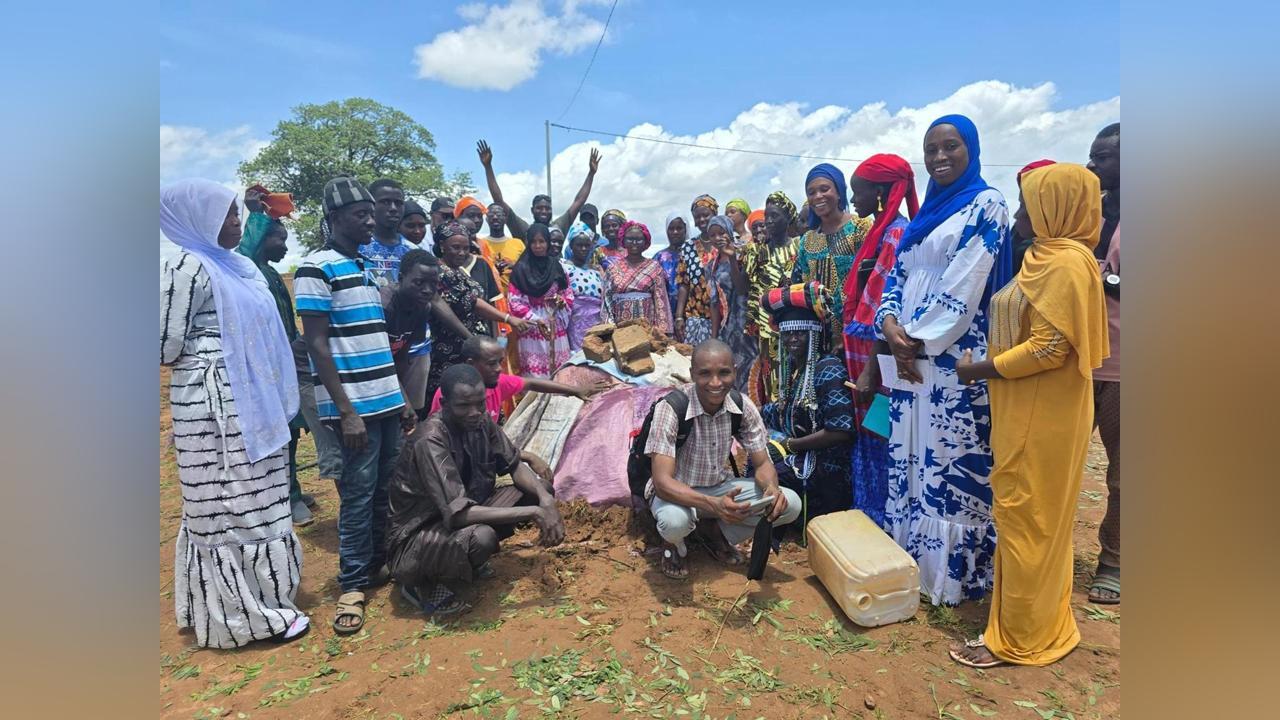Africa-Press – Gambia. The Strengthening Civil Society Organization Support and Advocacy for Sustainable Production (SAPOF) project has stepped up efforts to build the capacity of farmers on producing organic manure and pesticide techniques to boost food security and tackle climate change.
The project, funded by the EU and implemented by various agencies, is delivered in The Gambia through ActionAid International The Gambia (AAITG). It recently wrapped up a three-day training for local farmers on Climate Resilient Sustainable Agriculture (CRSA) practices at Kerewan in the North Bank Region. The session, which drew 35 farmers from the NBR, CRRN and CRR South, focused on promoting the use of organic manure and natural pest repellents.
Saikou F. Bah, Acting Project Manager, said the training is part of the project’s commitment to strengthen smallholder farmers’ capacity to adopt climate-resilient methods. He noted that farmers increasingly face challenges linked to climate change, poor soil fertility and unsustainable farming practices, which threaten food security and livelihoods for rural communities.
“The project aims to equip rural farmers with practical skills on producing and using organic manure and pesticides,” Bah said. He added that the training fits into AAITG’s wider push to promote agroecology and help farmers cope with climate shocks while building sustainable food systems.
Bah described the session as not just a training but “a life-changing solution for our farmers and a safer future for all of us.” He urged participants to adopt the lessons learned and act as ambassadors in their communities.
The workshop also aimed to create farmer-to-farmer networks for peer learning and knowledge exchange to encourage wider adoption of climate-resilient farming.
Lead trainer Momodou O. Baldeh, from Tanji Education Centre, stressed the importance of sustainable agriculture for national food and nutrition security. He said teaching farmers how to produce quick organic manure and pesticide empowers them to adopt eco-friendly practices that boost yields and income.
He reminded participants of the need to pass on the knowledge to others in their communities to reduce dependence on chemical fertilizers and encourage the consumption of healthier vegetables and crops. Baldeh urged farmers to plant trees along farm boundaries and use organic techniques to protect and enrich soil nutrients.
He said the training provided step-by-step lessons to help farmers move away from harmful chemicals and adopt greener methods that support better harvests.
Participants Dado Bah of Dalaba, Ancha Faal of Balanghar and Tata Suko of Niamina Misira thanked ActionAid and the EU for the support, saying that the new skills will help cut fertilizer costs and increase their incomes.
For More News And Analysis About Gambia Follow Africa-Press






